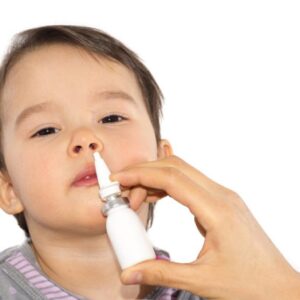
Pilot Study Finds Intranasal Oxytocin Does Not Improve Autism Symptoms in Children with PMS
— letter submitted by Alex Kolevzon, MD Clinical Director, Seaver Autism Center for Research and Treatment Icahn School of Medicine at Mount Sinai
I am writing to share disappointing results from the recently completed study of intranasal oxytocin in Phelan-McDermid syndrome (PMS). Studies in an animal model of PMS demonstrated that oxytocin reverses nerve cell changes, attention deficit, and social deficits (Harony-Nicolas et al., 2017). However, there have been no clinical trials in individuals with PMS to date. The purpose of this study was to assess the efficacy and safety of intranasal oxytocin as a treatment in children with PMS.
Eighteen children aged 5-17 with PMS were enrolled. Participants were randomized to receive intranasal oxytocin or placebo (intranasal saline) and underwent treatment during a 12-week double-blind period followed by a 12-week period during which all participants received intranasal oxytocin. Safety was monitored throughout the study period and efficacy was assessed using a variety of instruments to measure core symptoms of autism-related deficits, including the Aberrant Behavior Checklist – Social Withdrawal subscale.
There were no statistically significant improvements with oxytocin as compared to placebo on the primary outcome measure or on any secondary outcome measures, during either the double-blind or open-label phases. Oxytocin was generally well tolerated and there were no serious adverse events. Full study details have been submitted in manuscript form and we will provide updates as available.
The small number of participants, potential challenges with intranasal drug administration, and imperfect clinical outcome measures all contribute to limitations in interpreting results. However, our findings from this initial small pilot study suggest that intranasal oxytocin is not efficacious in improving the core symptoms of autism in children with PMS.
